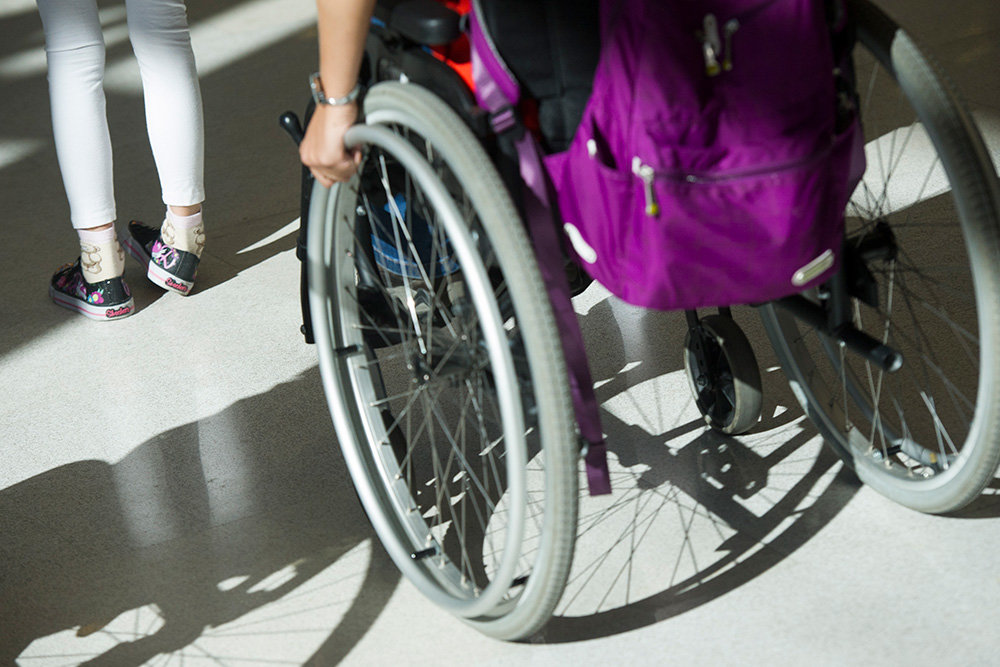
An important clarification was made by the Judicial Collegium for Administrative Cases of the Supreme Court of the Russian Federation, when defended the rights of the disabled. The bailiff, by decision of the court, began to withdraw money from his disability payments. The High Court explained, why the actions of bailiffs and judges, recognized such “withdrawal” normal, in fact – breaking the law.
The story began with, that a resident of Volgograd, by a court decision, became a debtor for 21 thousand rubles. The bailiffs initiated enforcement proceedings and issued a decision “on foreclosure on pension and other income of the debtor in the amount of 50 percent monthly”. The citizen considered the decision of the bailiff illegal and went to court with a lawsuit against the Bailiff Service, proving, that disability payments – this is not a pension or income. According to the plaintiff, bailiff's actions violate the law “About enforcement proceedings”, which refers to the inviolability of a minimum of property, necessary for the existence of the debtor.
But local courts sided with the bailiff.
First Kirovsky District Court of Volgograd, and then the regional court refused the disabled person. He had to go to the Supreme Court. They read the complaint and said, that the invalid's arguments are correct.
The Volgograd courts saw this in this dispute. In their opinion, the decision of the bailiff is not contrary to the law “About enforcement proceedings”, well, a small pension “does not exclude the possibility of levying a penalty on it and is not a circumstance, releasing the debtor from the obligation to execute a judicial act”. Local courts have said, what the law allows “to foreclose on the debtor's pension by deductions in the amount of, not exceeding 50 percent”.
On 17 species “untouchables” income cannot be forfeited
This is what the Supreme Court disagreed with.. Yes, said, that the law provides for the possibility of withholding from the debtor no more than 50 percent, if there are several writ of execution. Our hero had two of them for a total of 21 thousand rubles. The Supreme Court recalled, what is written in the law “About enforcement proceedings”, – the bailiff is not entitled to ignore the principles of enforcement proceedings: legality, respect for the honor and dignity of a citizen, inviolability of the minimum property, necessary for the existence of the debtor and his family.
Law, on which bailiffs work, provides only the maximum amount of retention, but the bailiff has the right to establish such a deduction amount, which would take into account the financial situation of the debtor. The Supreme Court has written – the bailiff was obliged to check the financial situation of the debtor. And reminded – The Constitutional Court has repeatedly said: if pension – the only source of existence, then it is necessary to ensure a balance between the interests of the creditor and the debtor.
The bailiff is bound by two constitutional principles: enforce the judgment and set the limits of possible recovery, to save the debtor the necessary level of existence. According to the Supreme Court, the bailiff did not fulfill his procedural duty – did not provide evidence, confirming the legality of the maximum amount of deduction. But that's not even the point, plaintiff, judging by the certificate of the local Pension Fund, no pension at all, and receives a monthly payment as a disabled person under the Law “Social protection of disabled people in the Russian Federation”. The Supreme Court said about this law, that it determines the policy of the state in the field of social protection of the rights of persons with disabilities in our country and is a system of state-guaranteed economic, legal measures and measures of social support for people, disabled. Here is the most important, what the Supreme Court emphasized: money under this law is included in the material support of the disabled and is not a pension, despite, that the payment is established and paid by the territorial body of the Pension Fund.
In law “About enforcement proceedings” (head 11) listed 17 species “untouchables” income, which cannot be charged. Among them is the money, received by our plaintiff. The Supreme Court emphasized, the legislator established a direct ban on foreclosure on social benefits. At the bailiff “there were no legal grounds” take not only half, to touch at all “disabled” money.
But local courts, provisions of the law enumerated by the Supreme Court did not apply. As the Supreme Court put it harshly, “the judicial acts held in the case do not comply with the requirements of the law”.According to the Supreme Court, local courts allowed “significant and irresistible violations of the law”. Disabled debtor case to be reviewed in the light of Supreme Court guidance.



